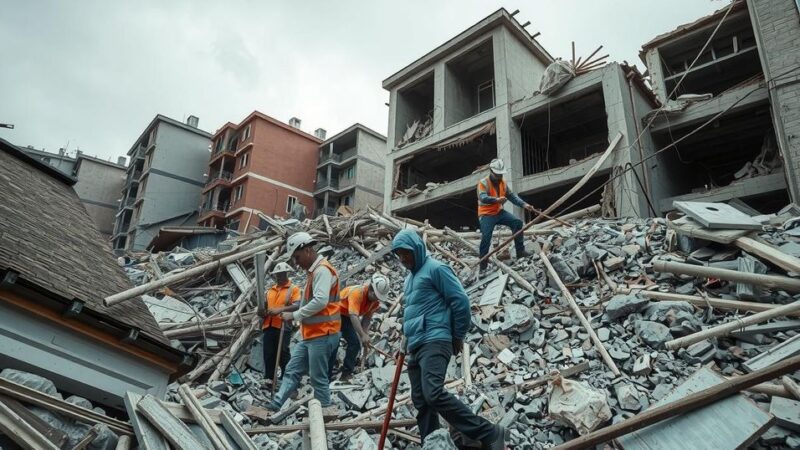South Africa has chosen not to remove its Antarctic research team despite allegations of physical assault and sexual harassment against one researcher. Investigations face challenges due to the remoteness of Antarctica. The case highlights ongoing concerns regarding misconduct within research teams operating in isolating and harsh conditions.
The South African government has decided not to withdraw its scientific team from Antarctica despite allegations of physical assault and sexual harassment against one of the researchers. Dion George, the Minister of Environment, stated that there have been no incidents warranting the removal of any of the nine overwintering team members. He assured that conditions at the base, known as Sanae IV, remain calm and controlled.
The allegations surfaced last month, and investigations commenced promptly. However, the geographical remoteness of Antarctica complicates oversight, as researchers can be isolated for extended periods, making it challenging to monitor their behavior or address complaints effectively. The extreme environment has historically contributed to incidents of misconduct on the continent, which lacks permanent residents.
Notable past events include harassments and serious incidents, underscoring a troubling trend of misconduct. Jane K. Willenbring, a notable academic, recounted her experiences of harassment during a research expedition years ago, while recent reports detail various instances of troubling behavior in Antarctic research settings.
The allegations were reported shortly after the team’s departure from South Africa on February 1 for a 13-month mission. George noted that the accused researcher extended a formal apology, demonstrated remorse, and underwent a psychological assessment, yet the incident reveals systemic issues within Antarctic research environments.
Professor Mathieu Morlighem emphasized the difficulties victims face in reporting harassment due to isolation. Researchers are typically subjected to rigorous vetting processes to ensure appropriate psychological and interpersonal compatibility, but concerns remain regarding the effectiveness of these measures.
Removing a team member from the base poses significant logistical challenges, as each individual plays a critical role in maintaining the station’s functionality during the harsh Antarctic winter. Dr. Dawn Sumner indicated that the removal of a single member could jeopardize the operation. The team is yet to face the most severe conditions of the Antarctic winter, which may exacerbate existing tensions at the base.
In summary, South Africa’s government will not withdraw its research team from Antarctica despite serious allegations against one member. The extreme environment complicates the investigation of misconduct, while historical patterns of harassment pose significant concerns. The operational challenges of Antarctic research stations hinder individual accountability, underscoring the need for enhanced oversight and support for affected team members.
Original Source: www.nytimes.com






